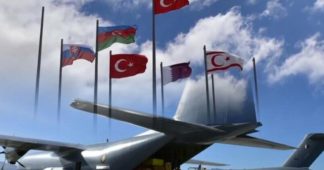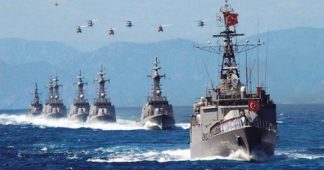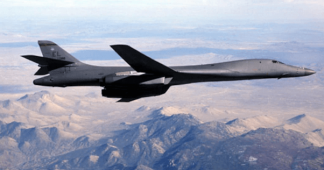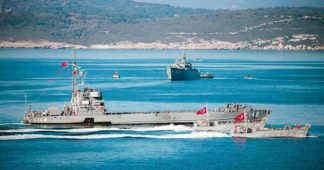Jan 29, 2024
Recent developments in occupied Cyprus indicate Turkey’s ambitious plan to establish itself as a dominant naval force in the Eastern Mediterranean.
Ankara’s strategy involves transforming the occupied Lefkoniko into a significant military base, alongside planned bases in Bogazi and Karpasia, all falling under the Turkish Naval Forces.
The move is seen as part of Turkey’s broader goal to strategically control the region, using the occupied territories as a stepping stone.
Lefkoniko airport
The occupied north recently handed over the illegal Lefkoniko airport to the occupying army, justifying the transfer on grounds of increased security concerns in the Eastern Mediterranean.
The Lefkoniko airport, under ongoing upgrades since September 2018, is envisioned to become Turkey’s foremost military base in the Eastern Mediterranean, adhering to NATO standards.
While currently serving as a hub for unmanned aerial vehicles (UAVs) and armed drones, the long-term objective is to permanently station fighter aircraft, providing Turkey with a strategic advantage in the region.
Retired Turkish Lieutenant Colonel Beyazit Karatas predicts a modernisation of the airport through maintenance and repair efforts, emphasising Turkey’s intention to establish a naval base and offer maintenance support to its fleet in the region.
The Republic of Cyprus has consistently raised concerns, formally complaining to the United Nations about Turkish illegal activities, particularly focusing on the continuous use of unmanned aerial vehicles.
Naval base in Bogazi
Plans for the construction of a naval base in Bogazi are underway, with preliminary measures, including securing the area and depth measurement, already completed.
Despite previous statements by the Turkish Minister of Defense downplaying the necessity of a naval base, the decision to proceed with construction has been made, though it is not currently considered an immediate priority.
The Bogazi base is expected to bolster the rapid deployment capabilities of military forces, facilitating maintenance, repair, and supply support. This move aligns with Turkey’s broader regional objectives, emphasising a long-term commitment to developing naval and aerial elements.
Radars in Karpasia
On January 23, 2024, a ceremony in Ankara marked the signing of a plan for the installation of a “ship traffic services” system in the occupied Karpasia region. The Cyprus Foundations Administration (EVKAF) has leased 108 acres to the occupying army for this purpose.
Mehmet Akif Nazar, the General Director of defence company HAVELSAN, announced during the ceremony that a ship traffic service centre and three traffic monitoring stations would be established in the occupied area. Additionally, two automatic identification system stations and a radar station will be incorporated into the system, with support and monitoring through the operational Mersin Ship Traffic Services Center.
The installation of the radar aims to monitor both maritime and aerial movements, complementing existing bases in Lefkoniko and the planned one in Bogazi, linking activities to vessels involved in energy operations.
The ongoing development of military infrastructure by the occupying force highlights a strategic initiative to maximise the geopolitical significance of Cyprus. The continuous upgrading of facilities and the creation of new ones indicate a broader regional ambition, extending beyond the Eastern Mediterranean to Africa.
We remind our readers that publication of articles on our site does not mean that we agree with what is written. Our policy is to publish anything which we consider of interest, so as to assist our readers in forming their opinions. Sometimes we even publish articles with which we totally disagree, since we believe it is important for our readers to be informed on as wide a spectrum of views as possible.











